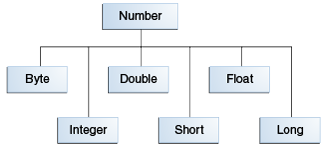Generics
With the help of Generics, the possible runtime Exceptions can be converted to Compile time Exceptions
Generics do not accept primitive types Java does the auto boxing and unboxing
List<Integer> intsList = new ArrayList<>();
intsList.add(3);//Adding primitive
intsList.add(Integer.valueOf(4));//Unnecessasary Boxing
if you give me a list of something and the criterion of the same thing, I will return to you a list of that same thing
X is a type variable in Java’s terminology and when we have a variable, we need to declare it before we use it.
The Type declaration of the Generic Variable is placed immediately before the Return Type
List Interface
// Example From java.util.Map.Entry<K,V>
public static <K extends Comparable<? super K>, V> Comparator<Map.Entry<K,V>> comparingByKey();
//Example from java.util.Comparator<T>
public static <T, U extends Comparable<? super U>> Comparator<T> comparing(Function<? super T, ? extends U> keyExtractor)
// From java.util.stream.Collectors
public static <T, K, D, A, M extends Map<K, D>>
Collector<T, ?, M> groupingBy(Function<? super T, ? extends K> classifier,
Supplier<M> mapFactory,
Collector<? super T, A, D> downstream);
// Generic Type is declared on Class/Interface
public interface List<E> extends Collection<E>
boolean add(E e)
boolean addAll(Collection<? extends E> c)
boolean containsAll(Collection<?> c)
E get(int index)
// Collections Utility Class, Generic Type is not declared on the Class so each method
// has to declare its own Generic return trype
public class Collections
//Here, collections does not declare a type. So if you want to use a generic type, you have to
//declare it on the method. And in this case, the empty list method is declaring T after the word final,
// but before the return type. And the return type is list of T.
public static <T> List<T> emptyList();//<T> between final and List<T>
public static final <K,V> Map<K,V> emptyMap();
public static <T> boolean addAll(Collection<? super T> c, T... elements);
//Return type is simply T
//we're saying that whatever the generic type is it must implement the comparable interface.
// Because the min method is going to cast all of the elements of the collection to comparable,
// in order to determine the minimum one. And this is the mechanism you use in order to declare that
// a generic type has a bound like that.
public static <T> T min(Collection<? extends T> coll, Comparator<? super T>
Scope (Need to understand)
- ?
- ? extends E (Upper Bound)
- ? super T
- Wildcards on Types
- Wildcards on methods
But First, WildCards, Generics and Inheritance
String extends Object,
Array of Strings extends Array of Object
BUT
List<String> does **NOT** extend List<Object>
Number is Super class to other Wrapper Classes

Wild cards
Unbounded
-
? - The idea behind the question mark operator is that when we declare a collection of that type, we’re saying we don’ t know what the underlying type is
- Can Read from it, but cannot write to it.
Upper Bound - ? extends AClass
a wildcard allows you to tell the compiler what type you’re expecting, and also allows you to provide elements that are that type, or subclasses of that type.
use the extends keyword and give a maximum class
- Give a maximum class
- can be defined and be read from
- cannot add to, as the data type cannot be resolved to
-
Covarience - preserves the ordering of types from more specific to more general
-
Generic java collections are covarient when extends is used with a wild card
- this means - if you declare a collection, with a bounded wildcard, you can use methods from the Bound (AClass in our case)
- Eg: List<? extends Number>, the methods of Number can also be used along with class of ?. Each element Supports Number methods as well, along with ?
Lower bound - ? super MyClass
It must be MyClass or above.
Example : forEach as the default method of Java 8. * Bound on the ? is AClass or above
-
Contravariant - preserves the ordering of types from more general to * *more specific**
-
Generic java collections are Contravariant when super is used with a wild card
PECS Producer Extends, Consumer Super.
Acronym coined by Joshua Bloch in “Effective Java”
Mnemonic for
- use extends keyword when we consume the value
- when there’s a value that’s coming in that we’re going to invoke methods on.
- use super when we provide a value,
- because then we can provide either the value itself or one of its superclass types.
- use explicit type when we have both an upper and a lower bound.
So for example, in Java 8 streams, if we’re pulling a value from the stream to use, that’s super. Whereas if we are using the value in the lambda that we’re providing, that’s extends.
Collectors.toMap
Collectors is a utility Class just like Collections.
public static <T, K, U>
Collector<T, ?, Map<K,U>> toMap(Function<? super T, ? extends K> keyMapper,
Function<? super T, ? extends U> valueMapper)